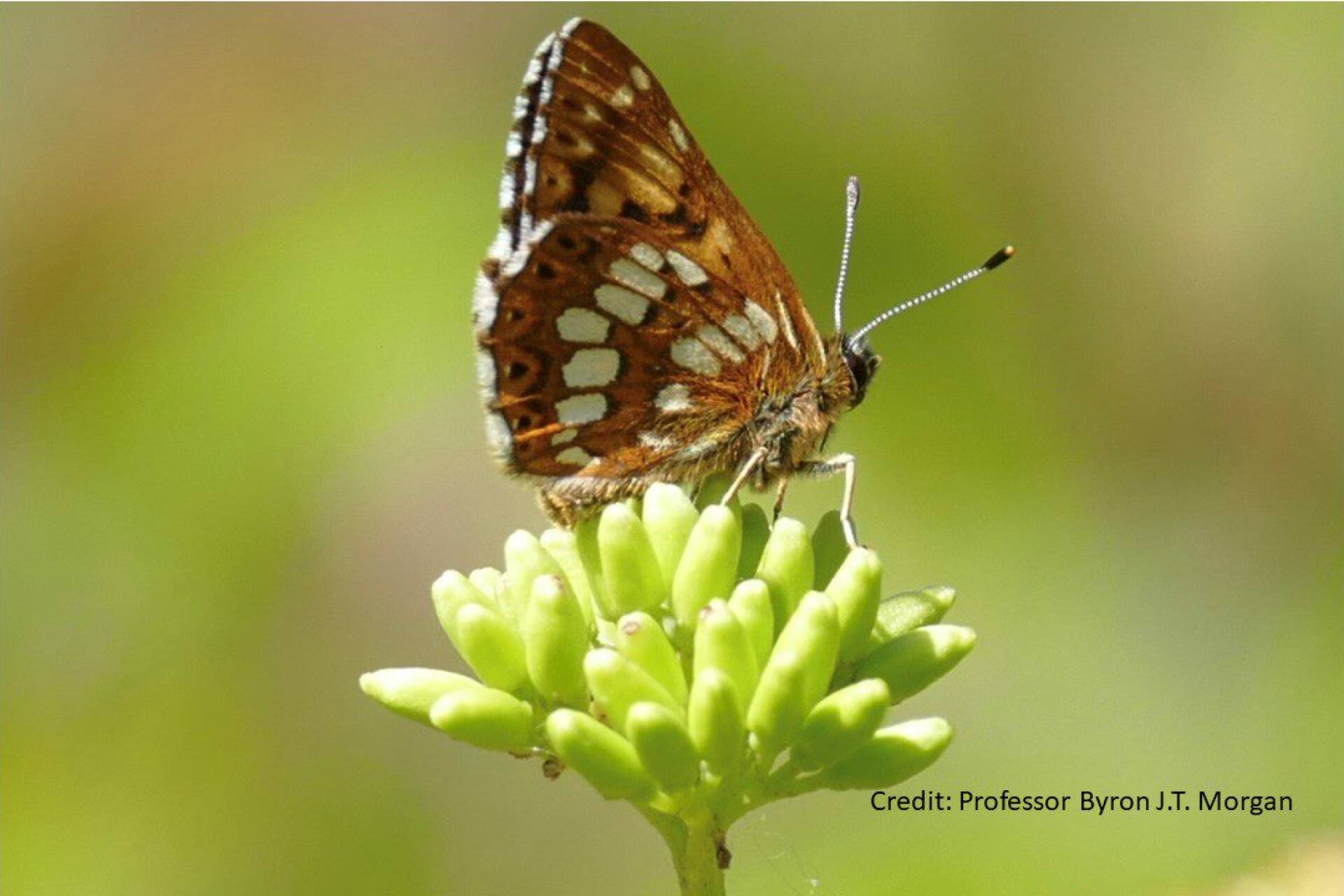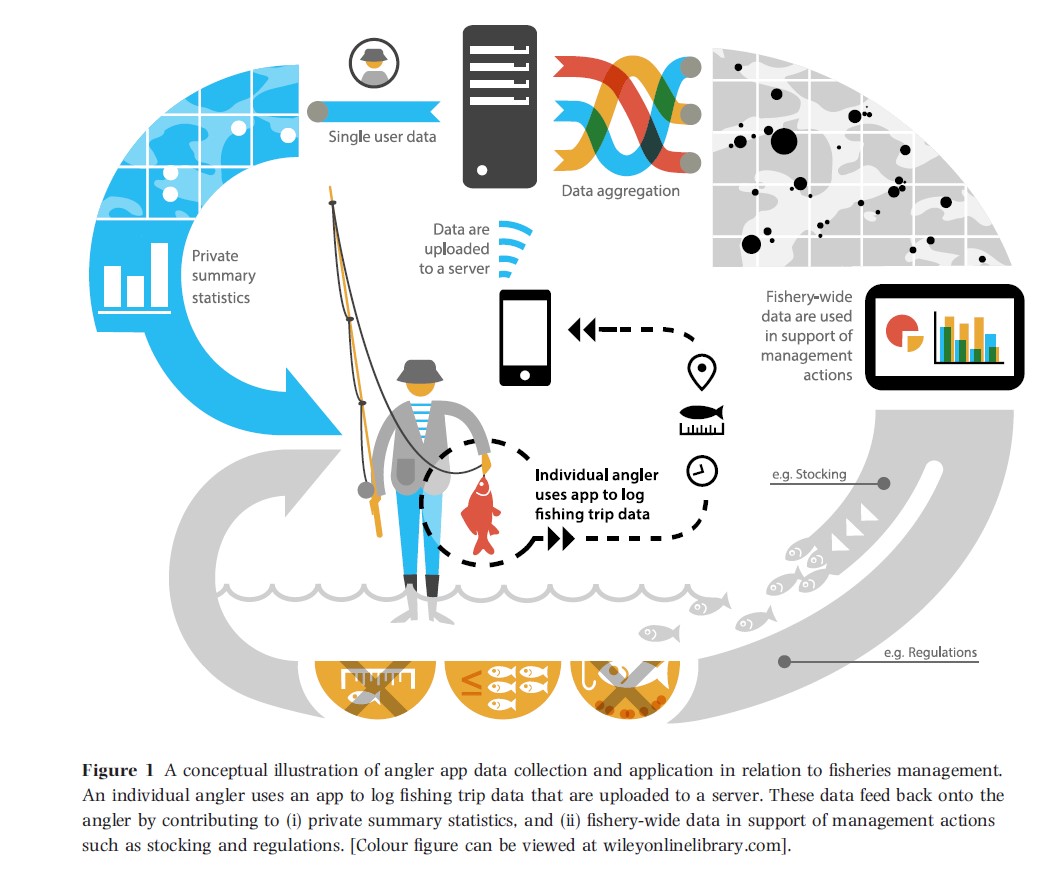PROJECT TITLE:
Developing novel spatio-temporal models for large citizen science data sets
Supervisors: This is a joint project between the University of Kent and Butterfly Conservation and the PhD student will be supervised by a team with expertise in Statistics, Statistical Ecology, Citizen Science, and Butterfly Monitoring
University of Kent: Dr Eleni Matechou, Dr Diana Cole, Prof Byron Morgan
Butterfly Conservation: Dr Emily Dennis, Dr Richard Fox
Application Process
Deadline for applications: midnight 2nd of July 2023.
Interviews will take place on the 18th of July 2023.
Applicants should follow the University of Kent’s online application process.
Please create an account and add your personal details as requested. Subsequently, you need to select your starting date (September 2023) and write your personal statement (see below). Choose “Other” for source of funding and “Definite” for funding. Add details of your qualifications, and then in the Research Information Tab, write “Dr Eleni Matechou” under supervisor and the title of the project (“Developing novel spatio-temporal models for large citizen science data sets”) as the research topic. You do not need to add a research proposal.
As part of the process, you need to provide the following:
o details of your qualifications;
o two academic references;
o a personal statement
The statement must be maximum 500 words detailing (1) your reason for applying for a doctoral studentship (i.e, why do you want to pursue doctoral studies) and (2) your fit with the proposed project (how your educational/professional/personal background has prepared you well to undertake research in this topic).
Please email Dr Eleni Matechou (e.matechou@kent.ac.uk) if you are interested in applying for the project or have any questions about the project or the application process.
Person specification
We seek a candidate with a strong quantitative background, for example an MSc in Statistics or an MSc with high statistics content. Experience coding in R, or similar, is essential. An interest in conservation and ecology is advantageous.
The University of Kent requires all non-native speakers of English to reach a minimum standard of proficiency in written and spoken English before beginning a postgraduate degree. For more information on English language requirements, please visit this page.
Training
The student will develop a strong, highly transferable skillset in statistical modelling and analysis using modern statistical and computational techniques applied to large unstructured data sets, with spatial and temporal replications. The student will benefit from interactions with conservation professionals at Butterfly Conservation, including opportunities to undertake fieldwork, to better understand the data collection processes and focal taxa of the project, as well as data use for conservation delivery and policy.
Scientific background
At a time of biodiversity loss, including widely reported insect declines, monitoring changes in species’ populations and distributions is vital. To that effect, there is an ongoing growth of unstructured citizen science data, where species can be recorded by anyone, from any time and place. The full potential of such sources of increasingly ‘big data’ for biodiversity monitoring has not yet been fully realized.
Analysing citizen science data of this nature presents unique challenges relating to their vast quantity but also associated sampling biases. Using cutting edge modelling, this project will maximise the potential of these valuable datasets, with application to data for butterflies and moths, to enhance our understanding of species’ phenology (flight periods), distribution and range dynamics.
Butterflies and moths respond quickly to habitat and climatic change, and hence are valuable biodiversity indicators. In the UK, millions of species’ occurrence records for Lepidoptera have been gathered by two large citizen science recording schemes. This project will develop new models for these datasets, with the aim to help inform future conservation delivery and policy and better understand the drivers of species’ change.
Research methodology
The student will develop new Bayesian statistical models and associated efficient algorithms and apply them to large spatio-temporal citizen science data for single and multiple species. The research will involve development of
- state-of-the-art variable selection techniques to better describe drivers of species’ range and distribution change through suitable spatial and environmental covariates.
- novel approaches to density estimation, building on Bayesian nonparametrics and related approaches, for modelling species’ phenology from citizen science data to identify drivers of change.
- assessment approaches to determine reliability of inference for rare and/or under-recorded species from available data.
Research excellence
The student will join the thriving Statistical Ecology @ Kent research group, being supervised by leading researchers in statistics and statistical ecology. They will also be members of the UK-wide National Centre for Statistical Ecology. They will attend London Taught Course Centre training, NCSE seminars, and SE@K specialist training and they will present research results at a range of appropriate national and international conferences. There will be ample opportunity for independent development, with the student gaining transferable knowledge of modern data science and statistics.
Scholarship Information
VC scholars will receive the following:
- Annual stipend at UKRI rates (£17,668 in 2022/23);
- Annual tuition fees at Home rates (£4,596 in 2022/23)
o 2023/24 rates to be announced.
Relevant literature
Diana, A., Dennis, E. B., Matechou, E., Morgan, B. J. T. (2022) Fast Bayesian inference for large occupancy datasets. Biometrics, . ISSN 0006-341X. (In press) (KAR id:98286)
Dennis, E.B., Morgan, B.J.T., Freeman, S.N., Ridout, M.S., Brereton, T.M., Fox, R., Powney, G.D., Roy, D.B. (2017) Efficient occupancy model-fitting for extensive citizen-science data. PLoS ONE 12(3): e0174433. https://doi.org/10.1371/journal.pone.0174433
, , , , & (2022) A general modeling framework for open wildlife populations based on the Polya tree prior. Biometrics, 00, 1– 13. https://doi.org/10.1111/biom.13756
Griffin, J. E., Matechou, E., Buxton, A. S., Bormpoudakis, D., & Griffiths, R. A. (2020). Modelling environmental DNA data; Bayesian variable selection accounting for false positive and false negative errors. Journal of the Royal Statistical Society: Series C (Applied Statistics), 69(2), 377-392.
Dennis, E.B., Morgan, B,J.T, Freeman, S.N., Brereton, T.M. & Roy, D.B. (2016). A generalized abundance index for seasonal invertebrates. Biometrics, 71, 1305-1314.
Dennis, E.B., Brereton, T.M., Morgan, B.J.T., Fox, R., Shortall, C.R., Prescott, T. & Foster, S. (2019). Trends and indicators for quantifying moth abundance and occupancy in Scotland. Journal of Insect Conservation, 23, 369-380.



